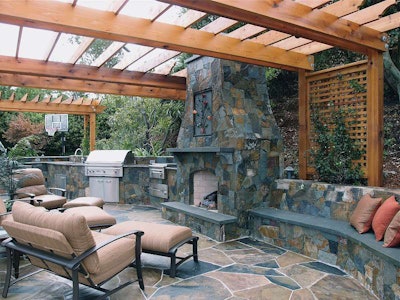 Photo: Derviss Design
Photo: Derviss DesignWhen it comes to creating the perfect landscape design, landscapers need to accommodate for a variety of aspects, including the environment.
Landscapers should take into account the environment and how the construction of a new design can affect that environment.
“Comprehending the location is one of the chief essentials for thriving landscapes,” according to DG Landscaping. “Distinct natural features like terrain, topography, soil features, wind speed and direction, etc. must be taken into account.”
The company has provided these tips on creating an ideal landscape design that complements the existing environment.
Unity – The concept of harmony means that everything works together. It is applied to colors, forms, heights and every other facet of the design. Using consistency and repetition is a good way to mark your unity.
Simplicity – Simplicity does not have to signify the design is restricted. It means the design should be limited in different hue shades, types of plants and also the design must be looking clean. A overwhelming design is bewildering to the eye. This is especially true if employed in a large area. Having too many things going on creates chaos.
Balance – Balance is easily keeping the design percentages identical throughout. Every side of the landscape should be equally balanced with the material. Balance includes colors and heights, in supplement to the overall look of the constructed gardens.
Focalization – Some landscapers will use specimen trees, while others may use things like beautiful fountains, statues, garden lightning or maybe the hardscaping used. In a large scale landscape, there may be more than one focal point. The landscape should have something that catches the eye.









